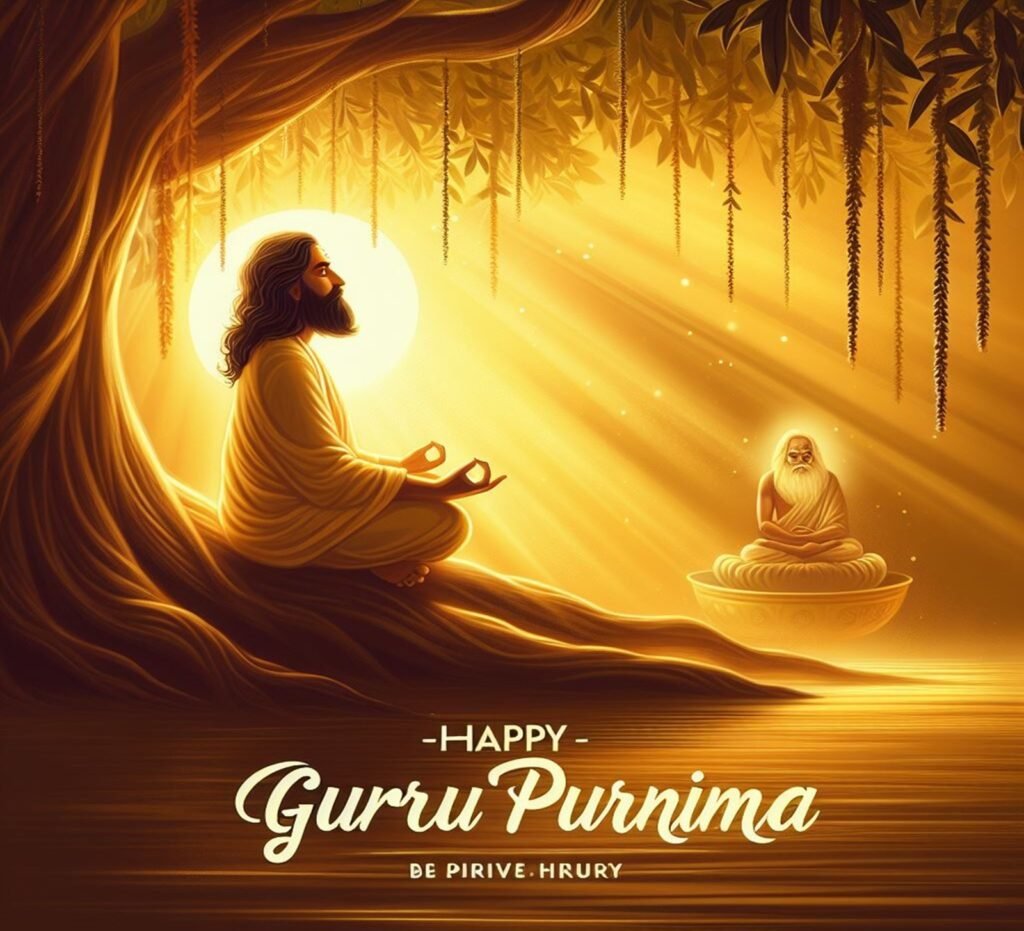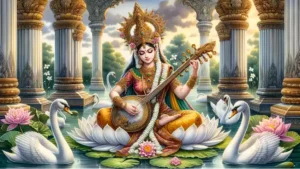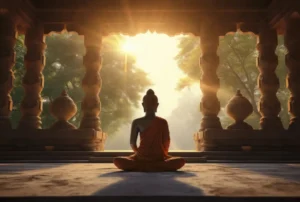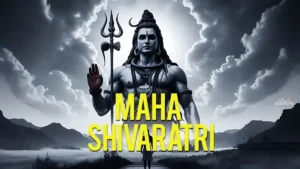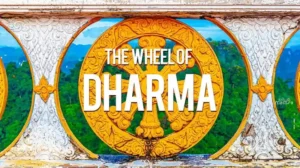Table of Contents
ToggleIn the tradition of Sanatan Dharma, the Guru is one of the most important figures in our lives. Our biological parents gave us material life but it is the Guru who takes us to the ultimate goal or goal of life which is “moksha” or liberation from the cycle of birth and rebirth. The Master holds the key to the gate of heaven in each of us. He, with His wisdom, opens the existing wisdom-religious treasury of the whole. He teaches us what it means to know ourselves or to know God.
Etymologically, the word guru comes from two roots: gu meaning darkness, and ru, which removes. Thus, the word guru refers to one who removes the darkness of ignorance and leads one to the light of knowledge.
What is Guru Purnima?
Guru Purnima is an occasion wherein the lineage of masters on the earth—masters who’ve been and the ones to return—are venerated with heartfelt gratitude for all the know-how handed down for heaps of years.
It is found on the overall moon day, Purnima, within the Hindu month of Ashadh, commonly June or July (the dates change every year inside the Gregorian calendar). This is while we honor and are well known as the guru principle in our lives, which has guided and formed the blossoming of our awareness, ability, and abilities in various areas of life and maintains to expose us to the manner to assemble our goals. In many traditions, guru puja is executed, a sacred rite where the masters both inside the frame or within the presence are worshipped amid melodious chants and services of culmination, betel nuts, garments, incense, and a lamp of mild
Read: Guru Purnima Quotes: Words of Wisdom for Spiritual Growth
Why is Guru Purnima Celebrated?
We dedicate specific days to honor our parents, family, and others for their unwavering support and contribution to our lives. But, have you realized that Guru Purnima is a day specially dedicated to our Guru or Gurus? Gurus, spiritual or academic figures, are those divine leaders who enlighten and develop their disciples with wisdom and knowledge.
Guru Purnima: Glorifying the Bond between Guru and His Pupils
The word ‘Guru’ stands for Guru and ‘Purnima’ means full moon. Guru Purnima is celebrated on the first full moon after winter in Ashadha (July-August). Gurus are regarded as teachers who remove the darkness of ignorance and illiteracy from their pupils or students, thus inculcating in them the light of knowledge and wisdom. Thus, this day is dedicated to the pious relationship of the teacher with his pupils or pupils.
Guru Purnima is celebrated by many communities in India, Bhutan, and Nepal. In Buddhist tradition, this day marks the day Gautama Buddha gave his first sermon to his first six disciples in Sarnath, Uttar Pradesh. Thus, Buddhists observe this day to commemorate. However, eventually, other communities started celebrating Guru Purnima in honor of their Guru or Gurus.
The Story of Guru Purnima
According to Hindu mythology, some yogis appeared in the Himalayan foothills about 15,000 years ago. No one knew where he came from but everyone felt his holy presence and gathered around him. He was thinking, not moving, and not speaking. Only occasional tears of joy from her face showed signs of life. Everyone was impressed with his power. Eventually, everyone but seven in the audience left, and they stayed.
When he finally opened his eyes, seven people asked him to teach them the way, wanted to experience what he felt. He fired them, but they persevered. Finally, he gave them a short preparatory step and closed his eyes again. Seven men began to prepare. Weeks, weeks, months, and years passed and the yogi’s meditation did not fall again until he was eighty-four. With the spring solstice, symbolizing the advent of the southern moon, it became clear to the yogis that the seven were shining vessels ready to receive the teachings of knowledge. And the first yogi – the first yogi became the first guru – the first guru. The original teacher was none other than the great Vyasa, hence the names Vyasa Purnima and Vyasa Puja.
How is Guru Purnima Celebrated?
The practice of Guru Purnima has great significance as it teaches us the value of our guru or gurus and their important role in our lives. Not only academically, but also through other extracurricular skills, they train their students to be ethical and responsible people and strive to lead a decent life.
During Guru Purnima, people celebrating the festival usually perform a special pooja in temples and homes or worship their deity. They offer prayers and offer flowers and sweets to their revered gurus for blessings. People also appreciate and respect their guidance. This time, a special ritual is performed for the people who celebrate this day. Some people fast and abstain from wrongdoing.
Many schools, colleges, and other organizations dedicated to arts and culture organize programs and music programs in honor of their gurus or teachers Guru Purnima, based on the guru-shishya tradition of ancient Indian music and dance, has special significance. This is based on a unique relationship between teacher and student, based on mutual respect and trust. Thus, in honor of their teachers, students of Indian classical music and dance pay special tribute to their teachers through their works of art.
Common Guru Purnima Celebrations
If you are already a practitioner of the traditions and rituals associated with Guru Purnima, you should know its significance and gravity. But, if you’re not, and the above ingredients appeal to you, let us suggest that you too can celebrate this wonderful event in your little ways.
If you are doing dance, music, art, or similar classes, remember your teacher “Happy Guru Purnima”. You can notice this even if you don’t participate in such activities. how? Remember that your mom and dad, are your first teachers. They will always be your guides, teaching you about the world. On Guru Purnima, you can honor and thank them, which will surely put a smile on their faces.
FAQ’s
Q1. How is Guru Purnima celebrated?
According to myths, there are many different beliefs. Hinduism honors Shiva, his teachings, and his seven followers. In addition, Jainism glorifies Mahavira and his followers. Finally, Buddhism honors Guru Buddha and his first discourse.
